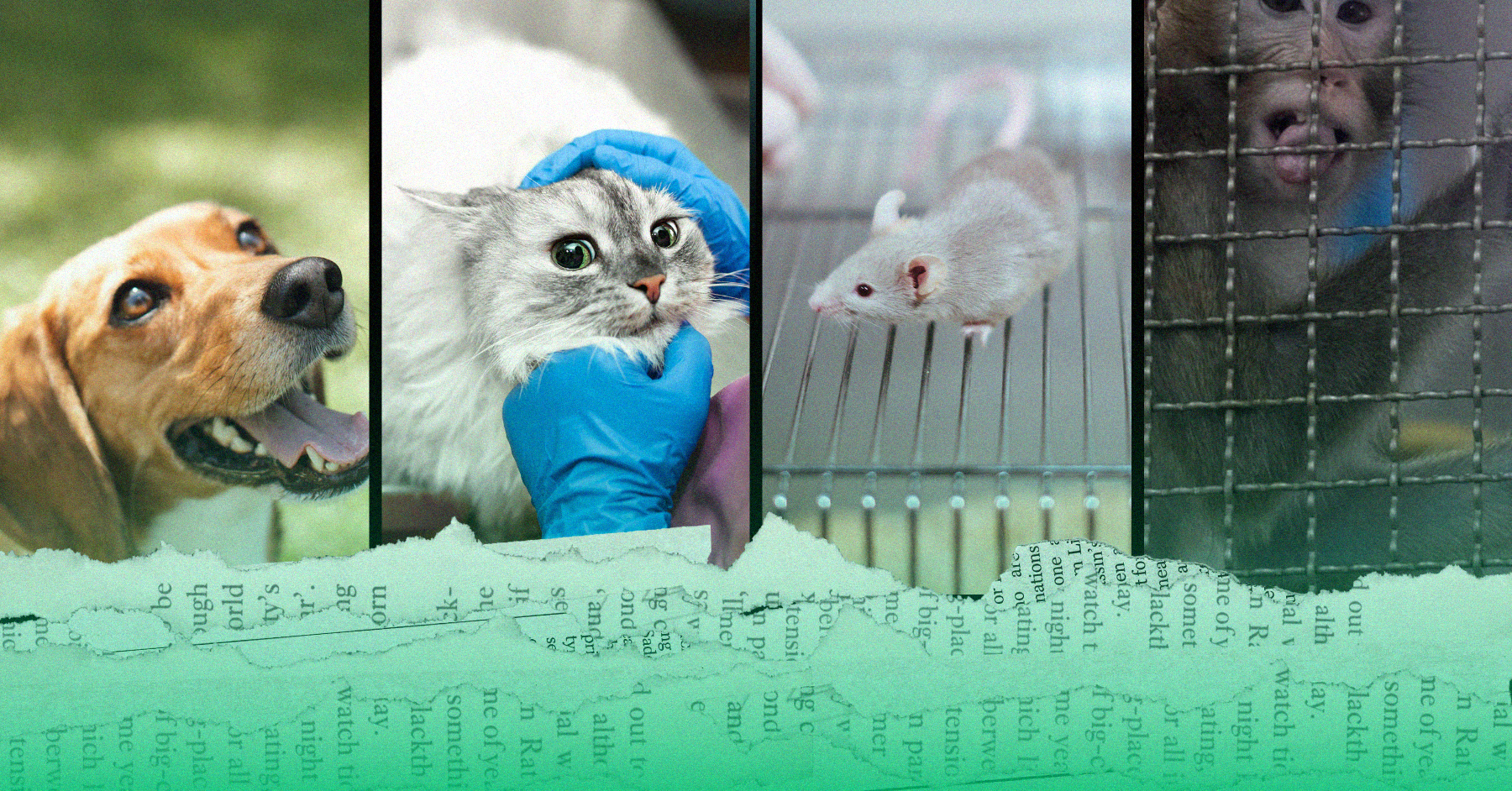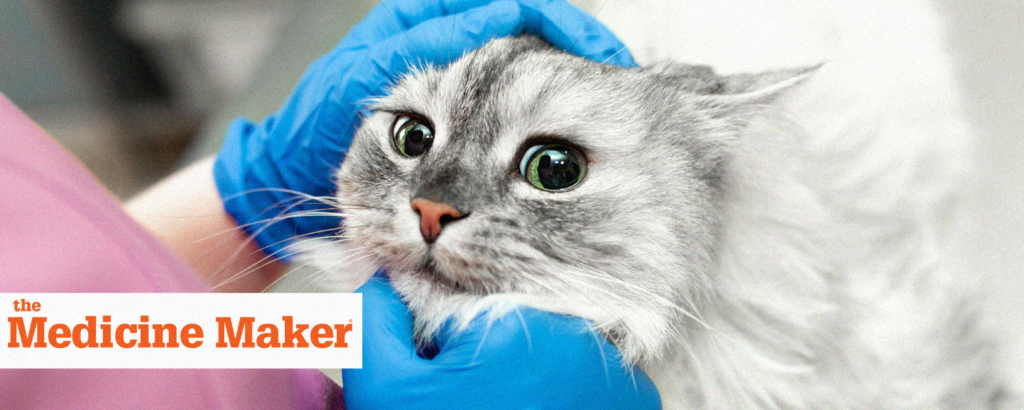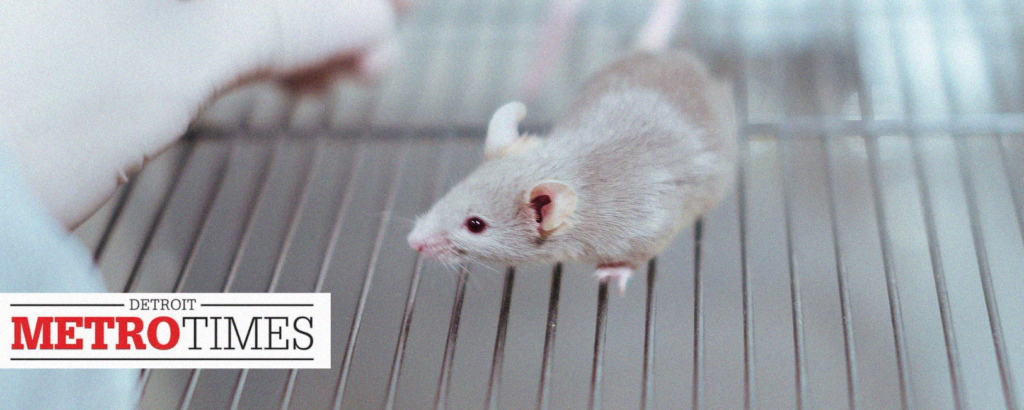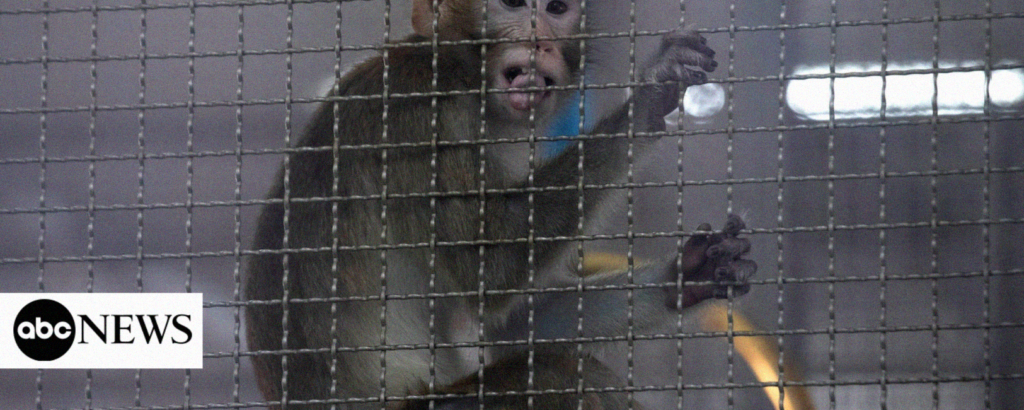
Here’s a roundup of this week’s biggest news stories related to animal research—all the recent media coverage you need to know right now to be the most effective activist for animals in labs.

Release the Beast
Pandora Pound, 1/16/2024
“Given that we are so technologically advanced – we can send people into space for months at a time! – why have we been unable to make significant inroads into our most common diseases? . . . Why are the billions of dollars we pour into research not coming up with the goods?”
“We often hear that 90 percent of drugs tested for safety and efficacy in animals go on to fail when tested in humans. But in some areas, the failure rate is even higher (it’s closer to 100 percent for stroke and [Alzheimer’s disease], while for traumatic brain injury it is 100 percent) – and that’s after 70 years of trying. Animal models are simply not good at generating effective drugs for humans. Nor are animal tests able to reliably ensure the safety of medicine.”
“Organ chips can outperform animal tests in detecting drugs that will be toxic to humans, and experts claim they are capable of doing things that animal models have never been – and never will be – able to do.” 📰 Full Story →

6 Important New Laws Helping Animals in 2024
Dina Fine Maron, 1/16/2024
“The new year ushered in a spate of laws across the United States designed to improve the lives of . . . animals.”
“Alternatives to animal research [are getting] a financial boost. This week marks the first time that facilities conducting research on animals must pay into a fund that will pay for programs to develop non-animal research methods.”
“The Maryland state legislation was signed into law by the governor in May 2023, but the payments into the new fund, which are required on a sliding scale based on number of animals used, weren’t due until January 15, 2024. Facilities must now pay between $5,000 and $75,000 annually to the Maryland Department of Health by January 15 of each year….” 📰 Full Story →

Public Comments Dominate January Board of Regents Meeting
Sarah Pabin, 1/16/2024
“The [University of Washington] Board of Regents (BOR) convened at Anthony’s Forum in Dempsey Hall Jan. 11 for their first meeting of 2024. The meeting’s standout moment was the public comment period.”
“Lisa Jones-Engel . . . spoke to the BOR about primate research. Although Jones-Engel was a member of the UW committee as a primate scientist for seventeen years, it is now her goal to shut down the country’s remaining primate centers, including the Washington National Primate Center….”
“They urged the university to look towards primate-free research in order to uphold the ethical conduct the institution’s research centers advocate for.”
“The BOR did not respond to any comments made by Jones-Engel during Thursday’s meeting or the multiple times she has tried to communicate with them over the last 18 months.” 📰 Full Story →

University of Michigan Faces Escalating Scrutiny Over Another Animal Research Scandal
Steve Neavling, 1/17/2024
“The University of Michigan is under increased scrutiny as a research fraud scandal continues to unfold, with yet another scientific journal retracting an article due to ‘unreliable’ and duplicated data. The research, which was partially federally funded, involved highly invasive experiments that induced seizures in mice. Their brains were later sliced into pieces.”
“ . . . SAEN filed a complaint Tuesday with the Office of Research Integrity for the U.S. Department of Health and Human services, pointing out that the research involved funding from the National Institutions of Health. A total of nearly $1 million was spent on research that yielded no useful information, the letter states.” 📰 Full Story →

Plan for $400 Million Monkey-Breeding Facility in Southwest Georgia Draws Protest
The Associated Press, 1/17/2024
“Opponents on Tuesday urged the Bainbridge City Council to block plans by a company called Safer Human Medicine to build a $396 million complex that would eventually hold up to 30,000 long-tailed macaques that would be sold to universities and pharmaceutical companies for medical research. The company says it plans to employ up to 263 workers [at this monkey-breeding facility in southwest Georgia].”
“Safer Human Medicine is led by executives who formerly worked for two other companies that provide animals for medical testing. One of those companies, Charles River Laboratories, came under investigation last year for obtaining wild monkeys that were smuggled from Cambodia. Charles River had proposed a similar facility in Brazoria County, Texas, south of Houston, but it has been stalled by local opposition.” 📰 Full Story →

Rising In Honor of MLK
Rise for Animals, 1/17/2024
Even if we cannot prove that Martin Luther King Jr. (MLK) explicitly included other-than-human animals in his advocacy, his family confirms that he certainly could have. Not only did MLK’s wife, Coretta Scott King, and one of his sons, Dexter King, openly adopt ethical veganism in the 1990’s and 1980’s respectively, but they have described the vegan philosophy and way of living as a “logical extension of Dr. King’s philosophy of nonviolence and justice.” 📰 Full Story →